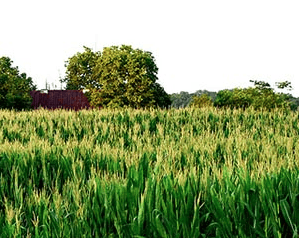Biofuel industry in Ghana endangers agriculture – Study
 The biofuel industry in Ghana is in its initial stages, but a study has found that it poses a great threat to the country’s agriculture and food security.
The biofuel industry in Ghana is in its initial stages, but a study has found that it poses a great threat to the country’s agriculture and food security.
The study which was conducted in Ghana by Carlos Píñar Celestino with logistical support from Intermón Oxfam and funding from the University Carlos III de Madrid in July and August 2009 warns that while the biofuel industry, particularly the cultivation of Jatropha “presents a new opportunity for revitalizing the agrarian activity that can improve living conditions for the rural population, it also presents a threat to food security and fragile land ownership rights.”
Biofuel companies, mostly foreign owned with some Ghanaian partners have been embarking on aggressive land acquisition for the purposes of cultivating some food crops and non-food crops for the production of biofuels and ethanol mostly for export to developed countries.
But inconsistencies in, and the multiplicity of the country’s land laws put smallholder farmers at risk of losing their land to powerful multinationals often with little or no compensation.
The study noted with worry that “biofuels companies are setting themselves up in the north of the country, where land is abundant and cheap and where Ghana’s poverty is concentrated.”
The study also warned that “in this area, an important part of the cereals are produced that feed the country; they are a basic food in Ghana, and scarce. All of these elements create a very sensitive situation that can damage domestic food security and turn a possible victory into a big failure.”
The northern part of the country has not undergone great improvement; 18.5% of its population lives in extreme poverty, and 54% of Ghana’s poor live in the northern region, which only accounts for 17.2% of the total population, according to the Ghana Living Standards Survey (GLSS).
The study also found that the ‘marginal land’ argument is a myth.
According to the study, proponents of biofuels, especially growers of Jatropha put forth the argument that the plant could grow on marginal land or degraded land. This argument they believe is a solution to conflict over land, and the weakening of food security. They also further argue that since marginal lands are not used by anyone, communities would not be displaced.
The author of the study however raises the questions “what is meant by marginal lands? And for whom are the lands marginal?”
“What are often presented as ownerless, unused lands are at times the source of subsistence for the poorest people, and provide them with food, medicine, construction materials, fuel and other resources, aside from being used normally for pasture,” the author argued.
According to the study due to its low value, the marginal land is not often clearly defined, which weakens its users’ rights. This is terrain which is especially important to women, who have restricted access to more fertile land and it is in these lands that they carry out many of their activities, such as gathering fuel.
Meanwhile, the study found that biofuels companies are reluctant to use ‘marginal lands’ because they will only give marginal yields, instead preferring fertile land.
This study further highlights the risk Ghana faces as an agrarian economy. About 70% of all adults in employment in Ghana work in the agric sector and the sector contributes about 45% of GDP. The country fortunately, did not suffer any crisis at the height of the global food crisis which led to riots, deaths and injuries to people in some neighbouring countries like Burkina Faso and Cote d’Ivoire.
The uncontrolled and unregulated development of the biofuels sector, has the potential to negatively affect the country’s food production. There is no specific policy to regulate the biofuels industry in the country.
The country, therefore, has to act and quickly too by formulating policy to regulate the industry to forestall any unforeseen danger with its related social conflicts, so that the biofuels industry will be streamlined for the benefit of investors, local people and the country.
By Emmanuel K. Dogbevi
